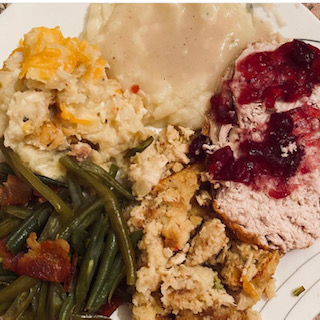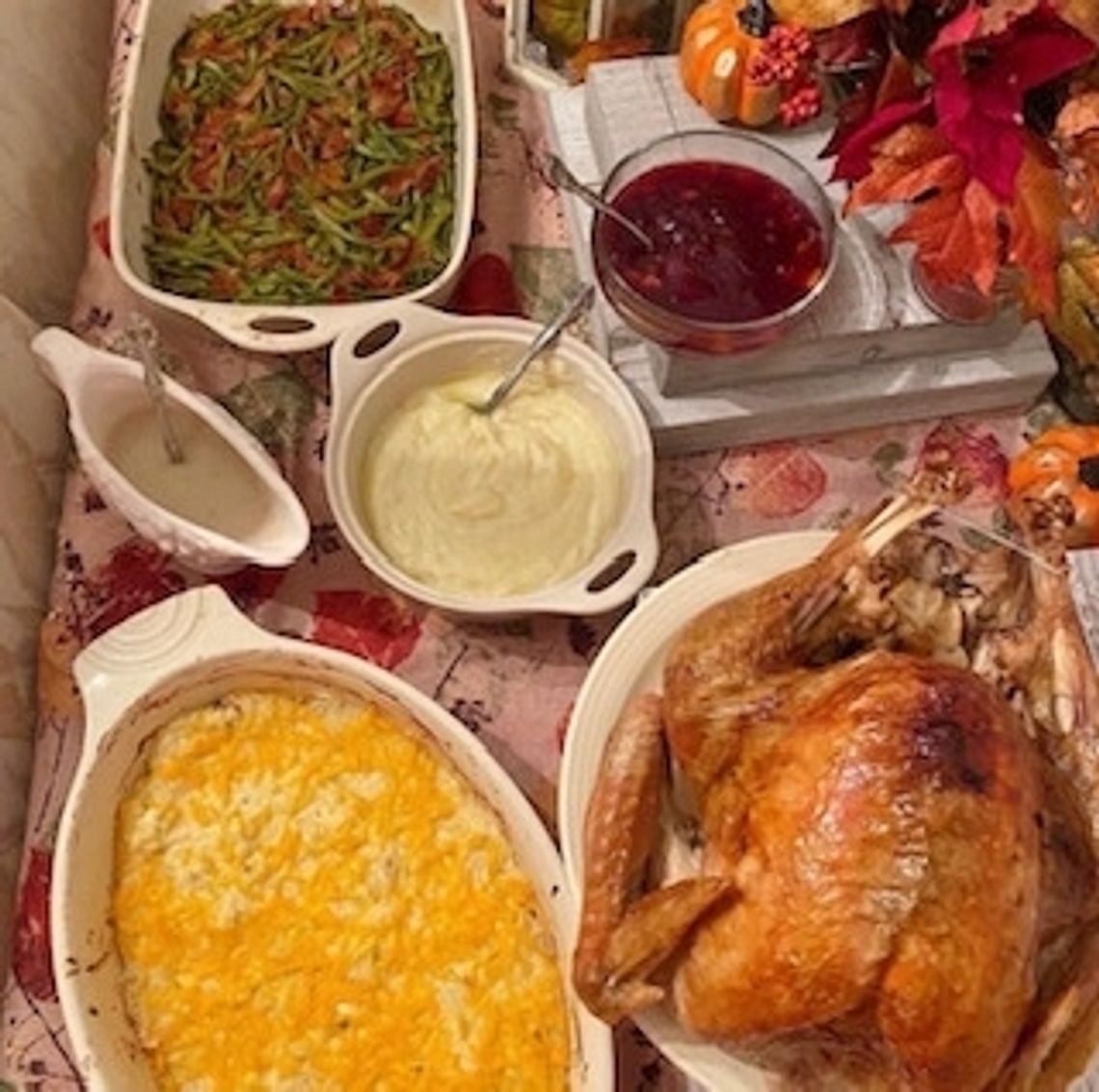By Kara Kimbrough
“Getting a turkey, dressing and desserts on the Thanksgiving table is not that hard to do. But some people do get scared, especially when they’re cooking for a crowd and want everything to go perfectly.”
Those words, uttered by a Mississippi caterer I interviewed several years ago, described my trepidation and if I’m being totally transparent – sheer terror – as I struggled to cook an entire Thanksgiving dinner during what will forever be known as 2020’s pandemic-scarred holidays. Yes, I DID cook an entire Thanksgiving dinner all by myself – turkey, dressing, mashed potatoes and gravy, cranberry sauce, green beans and bacon and hash brown casserole. Even better, I survived and nobody got ill, so I feel it's only fitting that I share tips to help others maneuver their way around what can be an extremely daunting experience.
First, let me explain why I tackled such a task. Thanksgiving 2020 was the first major holiday following the beginning of the coronavirus, which reared its ugly head in March of that year (in case you've blocked it from memory). Since the vaccine had not yet been distributed (yes, I took the initial two vaccines and subsequent boosters and am still alive and thriving), most families, including my own, decided not to gather together for fear of spreading the virus.
However, I still felt the need to drop off a few meals to family and friends, even if we were all cowering behind closed doors.
And, if I’m going to be totally honest, I was looking forward to making batches of turkey gumbo and turkey and wild rice soup with the remains of the bones and leftover meat. So, I set about trying to find acceptable recipe substitution recipes for my brother’s delicious smoked turkey and my mother’s cornbread dressing, neither of which was headed for any family dinner table in the foreseeable future.
The story of how I planned, prepared and cooked several dishes and actually got them on the table would take more space that this column allows. I will say, it wasn’t pretty, especially the sight of the frozen-turkey-that-wouldn’t-defrost floating in a dish pan in my sink for hours. Then there was the second pan of cornbread that was required after the first one overcooked when I got busy on another coking project.
So, I’ll simply provide an overview of my ’20 pandemic Thanksgiving meal, with the hopes that one or two tips may provide inspiration:
1. Turkey talk - The USDA recommends thawing turkey in the refrigerator. This is the safest method because the turkey will thaw at a consistent, safe temperature. Allow one day for each 4-5 pounds of weight.
If, like me, you run out of time, thaw the turkey in cold water outside the refrigerator, but use caution when doing so. Remove packaging and place the turkey in a large plastic bag to prevent it from becoming waterlogged, then place in a large stockpot or bucket. Make sure the turkey fits inside the pot and can be fully submerged. Fill the pot with cold water - do not use warm or hot water to speed thawing, as this puts the turkey within the “danger zone” of 40-140 degrees for longer than is safe. Weigh the turkey down with a pot or skillet if it floats. Change out the water every 30 minutes.
Estimate roughly 30 minutes for every pound of turkey to completely thaw, i.e., a 12-16 pound turkey will take 6-8 hours. A turkey thawed in cold water should be cooked immediately. Make sure the legs move freely, giblets can be removed easily and the cavity is free of ice crystals.
2. Call in the experts - I brined my turkey using Alton Brown of Food Network fame’s recipe. It can easily be found on the internet. And after perusing several cookbooks and the internet, I settled on Ina Garten’s Perfect Roast Turkey recipe. Despite the thawing issues, my turkey turned out moist, golden and delicious. However, due to the fact that this was my first turkey and I didn’t possess a load of confidence, I purchased a turkey breast from Honey Baked Ham and served it to family and friends along with other dishes I actually made.
Disclaimer” my own meal and subsequent gumbo and soup were delicious and no food poisoning was forthcoming, so in hindsight, I shouldn’t have been concerned.
3. Dressing by any other name still tastes as good - When it came to dressing, I knew my mother’s recipe couldn’t be duplicated. So I settled on a chicken and dressing casserole-type dish in case my turkey failed to yield the required meat for dinner. I needn’t have worried, but I was happy just the same with the different type of dressing.
.jpg)
4. By my side - Mashed potatoes and gravy are not traditionally found on our family Thanksgiving table, or on most Southern menus, but it’s a staple on many Northern tables. I decided to add them and can report it was a nice addition. Other sides included green beans and bacon and hash brown casserole made from my own recipes.
5. A little saucy - Making your own cranberry sauce is so easy and most important, so much better from the canned product. I was able to stir it together while cooking a hash brown casserole, another dish I happen to like; therefore, it made the list. The sauce added the perfect sweet touch to the dinner, because…
6. …I didn’t get around to making dessert (I know, what’s Thanksgiving without dessert?!) However, as I mentioned last week, Marie Callender’s pecan and apple pies are acceptable substitutions to homemade. I followed my own advice and added a slice of each to the meals I dropped off to those on my list.

And there you have it…I’m living proof that you CAN cook an entire Thanksgiving meal and live to tell the tale!
Next week, I’ll share my top tips and places to try if your plan is to let someone else do the cooking.
Homemade Cranberry Sauce
1½ pounds fresh or frozen cranberries
1 orange, zested
3 cinnamon sticks
1½ cups orange juice
1½ cups dark brown sugar
1 cup chopped walnuts
In a medium saucepan, combine cranberries, orange zest, cinnamon, orange juice, walnuts and brown sugar. Add enough water to cover, then bring to boil over high heat. Immediately reduce heat, and simmer for about one hour or until sauce has thickened. Remove the cinnamon sticks.
Taste for sweetness and adjust with additional sugar if necessary. Continue cooking until you achieve the perfect consistency. Let cool, then refrigerate in a covered container until ready to use.
Note: I chopped up 2-3 of the orange slices (finely) and added them to the sauce as it cooked, simply because I love the taste of oranges and cranberries, but this is optional.
Kara Kimbrough is a food and travel writer from Mississippi. Email her at [email protected].


Comment
Comments